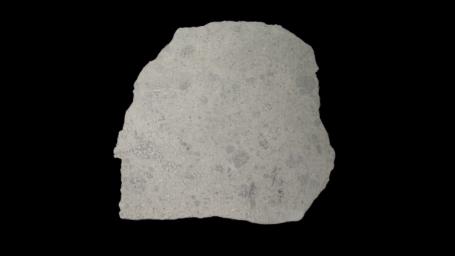
|
Possible Piece of Vesta
- Click the image above for a larger view
- Full-Res JPEG (1280 x 720) (56.0 kB)
- Full-Res TIFF (1280 x 720) (2.8 MB)
Caption:
Scientists believe a large number of the meteorites that are found on Earth originate from the protoplanet Vesta. A cataclysmic impact at the south pole of Vesta, the second-most massive object in the main asteroid belt, created an enormous crater and excavated a great deal of debris. Some of that debris ended up as other asteroids and some of it likely ended up on Earth.
Background Info:
The Dawn mission to Vesta and Ceres is managed by the Jet Propulsion Laboratory, for NASA's Science Mission Directorate, Washington, D.C. It is a project of the Discovery Program managed by NASA's Marshall Space Flight Center, Huntsville, Ala. UCLA is responsible for overall Dawn mission science. Orbital Sciences Corporation of Dulles, Va., designed and built the Dawn spacecraft. The German Aerospace Center, the Max Planck Institute for Solar System Research, the Italian Space Agency and the Italian National Astrophysical Institute are part of the mission team.
More information about Dawn is online at http://www.nasa.gov/dawn and http://dawn.jpl.nasa.gov .
Cataloging Keywords:
| Name | Value | Additional Values |
|---|---|---|
| Target | 4 Vesta | |
| System | Main Belt | |
| Target Type | Asteroid | |
| Mission | Dawn | |
| Instrument Host | Dawn | |
| Host Type | Orbiter | |
| Instrument | Framing Camera (FC) | |
| Detector | ||
| Extra Keywords | Color, Crater, Impact | |
| Acquisition Date | ||
| Release Date | 2011-06-23 | |
| Date in Caption | ||
| Image Credit | NASA/JPL-Caltech | |
| Source | photojournal.jpl.nasa.gov/catalog/PIA14284 | |
| Identifier | PIA14284 | |
